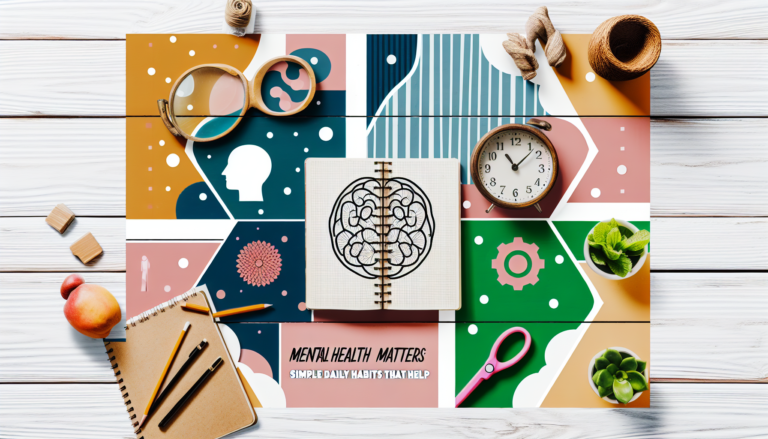Mental Health Awareness: How to Support Yourself and Others
Mental health awareness is gaining the spotlight it truly deserves as more and more individuals recognize the significance of mental well-being. Navigating the complexities of mental health can be challenging, both for those who experience conditions and those eager to provide support. But how can we adequately support ourselves and others in a world that’s increasingly complicating our mental landscape? Let’s dive into understanding the vital strategies for fostering mental health awareness effectively.
Understanding Mental Health and Its Importance
Awareness is the first step in addressing mental health issues. It’s crucial to acknowledge that mental health is just as important as physical health, affecting aspects like mood, behavior, and even our ability to cope with stress. Recognizing its impact not only on our personal lives but also how it influences community dynamics is essential.
Why Mental Health Matters
Mental health affects how we think, feel, and act. It also determines how we handle stress, relate to others, and make choices. Mental health awareness is key to understanding and managing our mental well-being, enabling us to lead fulfilling lives. Awareness opens up avenues for seeking help and fostering dialogue—steps that are fundamental to combat stigma and misunderstanding surrounding mental health issues.
The Impact on Society
This awareness is critical not only at an individual level but also community-wide. Unaddressed mental health issues can lead to wider societal problems including increased stress, anxiety, and depression levels. This makes mental health awareness a public health priority that can ultimately lead to healthier societies.
Supporting Yourself: Strategies for Personal Mental Health Management
Nurturing your mental health can seem daunting, but small, consistent steps can lead to improved well-being over time. Here are some strategies:
Practicing Self-care
Self-care involves prioritizing activities that cater to your physical and mental health needs. This can range from engaging in physical activity, like exercise or yoga, to taking time to unwind and enjoy your hobbies. Allocating time to self-care does not only enhance your mood but boosts your overall mental resilience.
Mindfulness and Meditation
Implementing mindfulness practices helps you stay in the present moment, reducing stress and anxiety. Techniques such as meditation and deep-breathing exercises can be very effective. Begin small, with just five minutes a day, and gradually increase as you become more comfortable. Discover more about starting meditation for your mental well-being.
Establishing Healthy Routines
Regular sleep patterns, balanced nutrition, and consistent physical activity form the backbone of healthy routines. Establish a routine that starts off your day with positivity, and includes breaks for rest, reflection, and connection with others.
Supporting Others: How to Provide Effective Mental Health Support
Understanding how to offer effective support to others in their mental health journeys is critical. It’s not just about being there but also knowing what to do or say.
Listening and Communicating
Sometimes the best support comes from being a good listener. Allowing someone to share their feelings without judgment can be immensely supportive. Encourage open conversations and reassure them that it’s okay to feel the way they do.
Encouraging Professional Help
While your support is meaningful, it’s important to guide others towards seeking professional help when necessary. Therapists and counselors can offer them tools and strategies specifically tailored to their needs. Read more about the importance of professional therapy and how it can benefit mental health.
Community Support and Resources
Direct people towards mental health resources and support groups where they can share experiences with peers. These platforms can provide additional, specialized support and a sense of belonging, reducing feelings of isolation.
Overcoming Stigmas: Changing Perceptions
One of the significant obstacles in mental health support is stigma. Educating ourselves and others, sharing experiences, and fostering open discussions can drastically shift community perspectives.
The Power of Education
Education is a powerful tool in reducing stigma. By learning about different mental health conditions and their impacts, we empower ourselves and dismantle stereotypes. Share your knowledge and challenge misconceptions whenever possible.
Building a Supportive Community
Encourage a culture where mental health awareness is prioritized. Support community efforts aimed at raising awareness, whether through local workshops, mental health days at workplaces, or community events that emphasize mental well-being.
Conclusion: Your Role in Mental Health Awareness
Raising mental health awareness isn’t a solo effort; it requires collective actions. By embracing personal strategies for well-being and learning to support others, we contribute to healthier, more supportive communities. Stay informed, be empathetic, and always keep the lines of communication open.
If you found these insights helpful, please share your thoughts in the comments below or share this article with someone who might benefit from it. For more tips, subscribe to our blog and join our mission to spread mental health awareness.


Leave a Comment